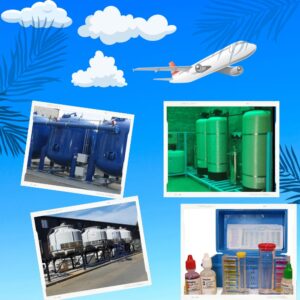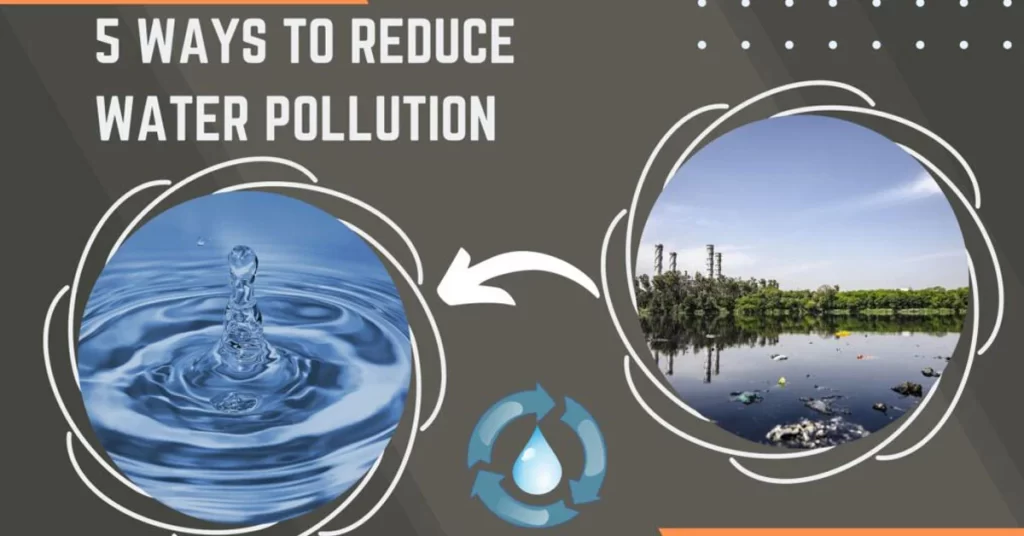Water is a vital resource, essential for all life forms. However, the alarming rise in water pollution threatens both the environment and human health. In this article, we will explore five effective ways to reduce water pollution and emphasize the importance of collective efforts in safeguarding our water bodies.
1. Understanding the Significance of Reducing Water Pollution
The Environmental and Health Impacts of Water Pollution
Water pollution poses severe environmental and health risks. Contaminated water bodies harm aquatic ecosystems, disrupt the food chain, and can lead to the extinction of various species. Moreover, polluted water sources can cause waterborne diseases and long-term health problems in humans.
Why We All Need to Play a Part in Reducing Water Pollution
Water pollution is a shared responsibility. It affects everyone, from individuals to industries and governments. By actively participating in pollution reduction, we protect our health, environment, and future generations. Each small action collectively contributes to a significant impact.
2. Minimizing Industrial Contributions to Water Pollution
The Role of Industry in Water Pollution
Industries play a significant role in water pollution due to their discharges of hazardous chemicals and untreated wastewater. Understanding and acknowledging this role is the first step towards change.
Implementing Sustainable Practices in Manufacturing
To minimize industrial water pollution, industries can adopt sustainable practices. This includes treating wastewater before discharge, implementing efficient filtration systems, and reducing the use of harmful chemicals. Sustainable manufacturing benefits both businesses and the environment.
Regulatory Measures for Industrial Water Pollution Reduction
Government regulations and oversight are crucial in reducing industrial water pollution. Stricter compliance and enforcement ensure that industries adhere to environmentally responsible practices, preventing contamination of water bodies.
3. Addressing Agricultural Practices and Water Pollution
The Impact of Agriculture on Water Quality
Agriculture can contribute to water pollution through the runoff of pesticides, herbicides, and fertilizers into water bodies. Understanding this impact is essential for developing solutions.
Sustainable Farming Techniques to Reduce Runoff
Farmers can adopt sustainable farming techniques, such as contour farming, crop rotation, and buffer strips, to minimize runoff and prevent the contamination of nearby water sources.
Government Initiatives for Agricultural Water Pollution Control
Governments can implement and incentivize programs that promote responsible agricultural practices, reduce runoff, and protect water quality. Collaboration between policymakers and farmers is crucial for success.
4. Promoting Responsible Household Habits for Cleaner Water
Common Household Activities That Contribute to Water Pollution
Everyday household activities, such as improper disposal of household chemicals, overuse of fertilizers, and inadequate septic system maintenance, can contribute to water pollution. Awareness of these practices is essential for change.
Adopting Eco-Friendly Practices at Home
Individuals can reduce water pollution by adopting eco-friendly practices at home. This includes proper disposal of household chemicals, reducing pesticide and fertilizer use, and maintaining septic systems to prevent leaks.
Reducing Non-Point Source Pollution in Residential Areas
Non-point source pollution, often originating from residential areas, can be reduced by planting rain gardens, using permeable pavements, and avoiding littering. These actions help prevent pollutants from entering water bodies.
5. Advancing Technology and Innovation in Water Pollution Reduction
The Role of Technology in Monitoring and Mitigating Water Pollution
Technology plays a pivotal role in addressing water pollution. Innovative monitoring systems, such as remote sensors and drones, help detect and respond to pollution incidents promptly.
Promising Innovations for Cleaner Water Bodies
Innovations like floating wetlands, constructed wetlands, and phytoremediation offer eco-friendly solutions for cleaning polluted water bodies. These technologies can restore and maintain water quality.
Collaborative Efforts for a Pollution-Reduced Future
Reducing water pollution is a collective effort that involves individuals, industries, governments, and environmental organizations. By working together and sharing knowledge and resources, we can build a future with cleaner and safer water bodies.
Resources for Reduce Water Pollution
Water recycling stands as a crucial element in the broader mission to ‘Conserve Water‘ and ‘Preserve the Planet.’ It hinges on an array of advanced technologies and infrastructure, encompassing Water Filtration Plants, which play a pivotal role in eliminating impurities from wastewater. Cooling Tower Water Treatment systems are instrumental in upholding the quality of water used for cooling purposes within industrial environments. Furthermore, Ultra Filtration Water Plants and Distillation Plants further enhance wastewater treatment, guaranteeing its suitability for various non-potable applications. Water Softening Plants and Water Testing Kits also form an integral part of the process, offering the essential tools and expertise needed to ensure the efficient and responsible reutilization of this invaluable resource.

You can Follow us on Facebook , Twitter , Linked in , you tube , and instagram .
FAQs
Why is it essential to reduce water pollution?
Reducing water pollution is vital to protect the environment, aquatic life, and human health. Contaminated water bodies can lead to severe consequences.
What can individuals do to reduce water pollution at home?
Individuals can adopt eco-friendly practices, such as proper chemical disposal, reduced fertilizer use, and septic system maintenance, to minimize water pollution from households.
How can industries contribute to reducing water pollution?
Industries can implement sustainable practices, treat wastewater before discharge, and comply with government regulations to reduce their contribution to water pollution.
What role does technology play in monitoring and mitigating water pollution?
Technology aids in monitoring and addressing water pollution by providing real-time data and innovative solutions for pollution detection and mitigation.
Why is collaboration essential in reducing water pollution?
Collaboration between individuals, industries, governments, and environmental organizations is crucial to create a collective effort towards a pollution-reduced future.

